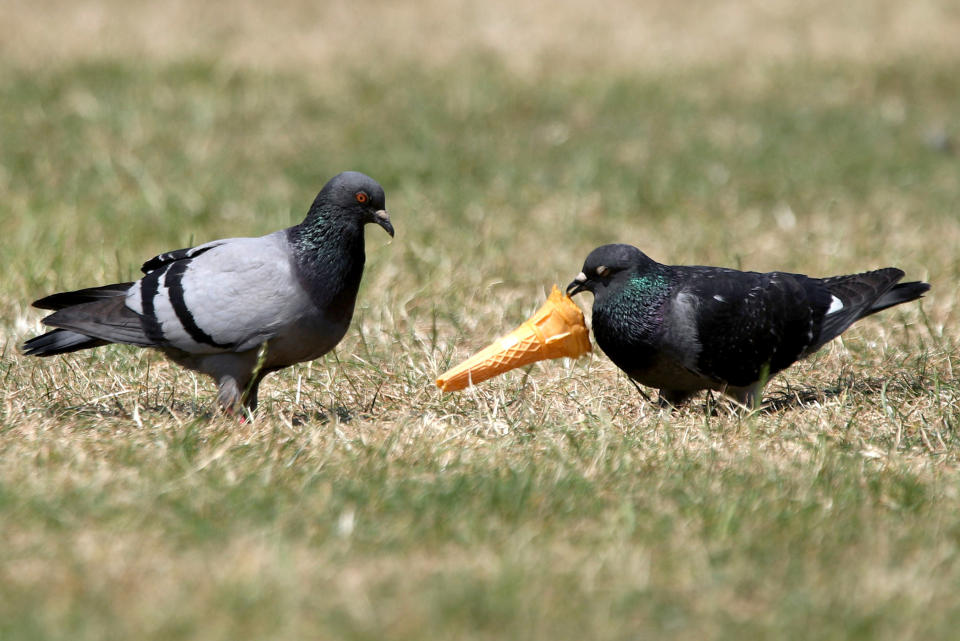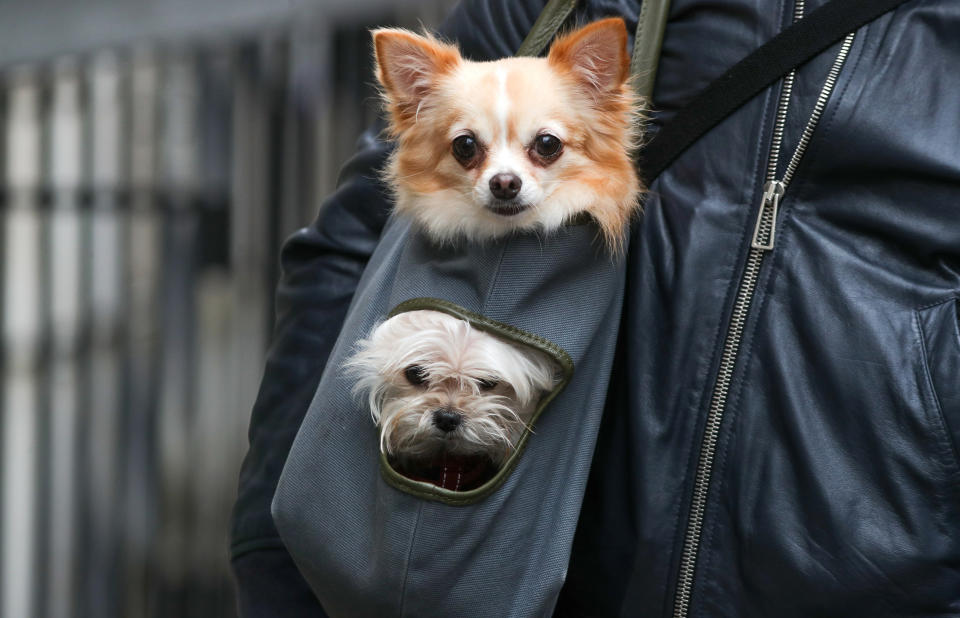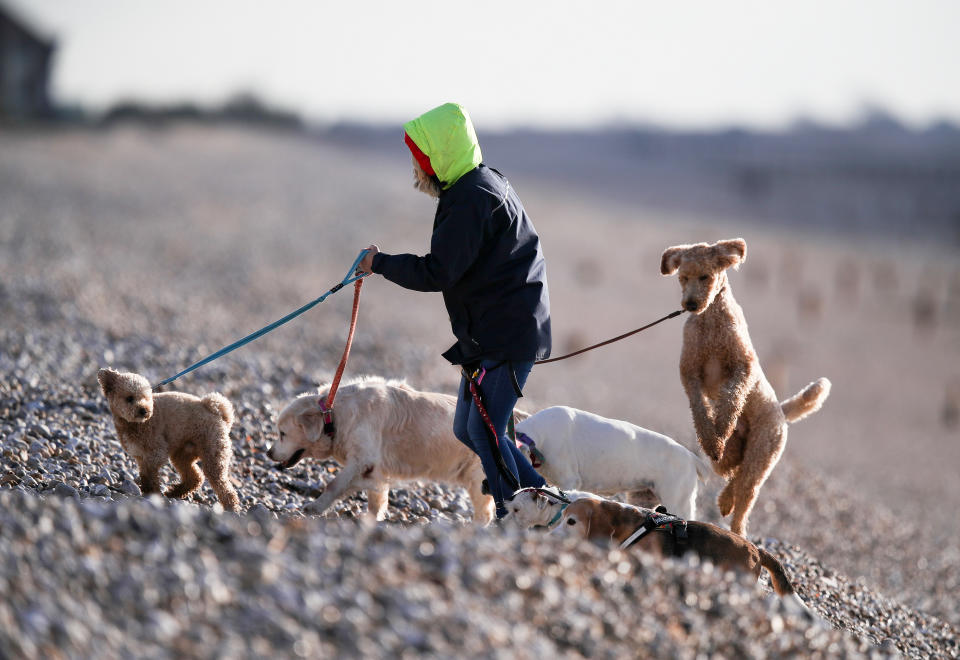Dog owners urged to keep their pets away from pigeons over fears they could contract chlamydia

Dog owners have been warned to keep their pets away from live or dead pigeons – because they could end up contracting CHLAMYDIA.
Vets are warning dog owners to take extra care when walking their dogs, because pigeons carry a form of the unwanted condition they are susceptible to.
But our beloved canine pets do not contract chlamydia in the same way and can be infected by bird carcasses and even bird poo – rather than being sexually active.
Parks and fields heavily populated with birds put dogs at higher risk of the disease which leaves dogs ‘pawing at their eyes’ with itchy symptoms.

Iain Booth, from VetUK, said: “Whereas chlamydia in humans tends to affect their reproductive organs, in dogs it affects eyes and their breathing.
“If your dog’s eyes are watering or red and they’re producing certain amounts of discharge, they may be infected.
“In dogs it’s likely to manifest itself in the eyes, but can affect their respiratory tract too and make them pant more and they can also become lethargic.
“If they’re scratching or pawing at their eyes or they’re panting for more air, it could be because they’ve come into contact with the bacteria.”

Dog chlamydia is not an STD but there are similarities to the human version.
Both humans and dogs do not always show signs of infection and can develop more serious problems when left undetected.
But the chances of a person catching the disease from their dog are ‘extremely rare.’
Mr Booth said: “This is a different strain of chlamydia than the STD, and you cannot catch an STD from your dog.
“For its transmission, you’d have to have the chlamydia vaporised, as in dry bird poo which turns into dust form and sticks to a dog’s moist facial parts like the nose and eye.
“From there the disease can stick and germinate – but to catch it from your dog’s wet eyes would be highly improbable so do not worry.
“Chlamydia psittaci is zoonotic, meaning it can be spread from animal to human, but previous cases have been from birds to humans.”
To diagnose chlamydia in dogs, vets look for discharge oozing from the animal’s eyes.
Pets are likely to make a full recovery within four to six weeks but if they are left untreated, more serious health issues can develop.
Severe cases in canines could lead to pneumonia, pericarditis and even death.

 Yahoo Sport
Yahoo Sport 





































